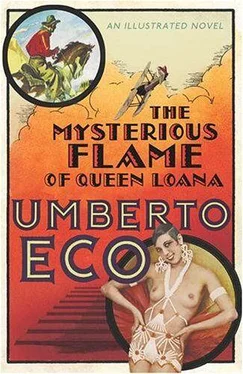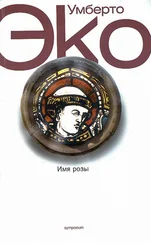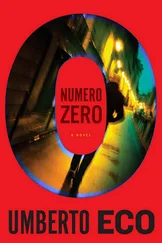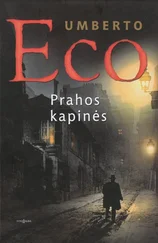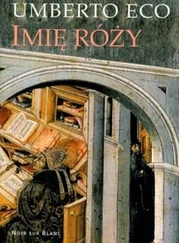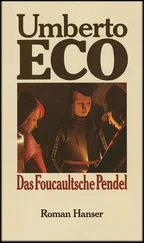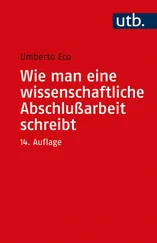Umberto Eco - The Mysterious Flame Of Queen Loana
Здесь есть возможность читать онлайн «Umberto Eco - The Mysterious Flame Of Queen Loana» весь текст электронной книги совершенно бесплатно (целиком полную версию без сокращений). В некоторых случаях можно слушать аудио, скачать через торрент в формате fb2 и присутствует краткое содержание. Жанр: Исторический детектив, на французском языке. Описание произведения, (предисловие) а так же отзывы посетителей доступны на портале библиотеки ЛибКат.
- Название:The Mysterious Flame Of Queen Loana
- Автор:
- Жанр:
- Год:неизвестен
- ISBN:нет данных
- Рейтинг книги:3 / 5. Голосов: 1
-
Избранное:Добавить в избранное
- Отзывы:
-
Ваша оценка:
- 60
- 1
- 2
- 3
- 4
- 5
The Mysterious Flame Of Queen Loana: краткое содержание, описание и аннотация
Предлагаем к чтению аннотацию, описание, краткое содержание или предисловие (зависит от того, что написал сам автор книги «The Mysterious Flame Of Queen Loana»). Если вы не нашли необходимую информацию о книге — напишите в комментариях, мы постараемся отыскать её.
The Mysterious Flame Of Queen Loana — читать онлайн бесплатно полную книгу (весь текст) целиком
Ниже представлен текст книги, разбитый по страницам. Система сохранения места последней прочитанной страницы, позволяет с удобством читать онлайн бесплатно книгу «The Mysterious Flame Of Queen Loana», без необходимости каждый раз заново искать на чём Вы остановились. Поставьте закладку, и сможете в любой момент перейти на страницу, на которой закончили чтение.
Интервал:
Закладка:
I skipped the fruit and went upstairs to find the settle. I had paid little attention to it in the course of my first visit, but I opened it and there they were, one on top of the other, all of them good old 78s in their protective sleeves. Amalia had set them down in no particular order, and there were all kinds of things. I spent half an hour transporting them onto the desk in the study, then began to put them in some kind of order on the shelves. My grandfather must have been a lover of good music: Mozart was there, and Beethoven, opera arias (even a Caruso), and a lot of Chopin, but also a fair share of popular songs.
I looked at the old Radiocorriere: Gianni was right, the listings included a weekly opera program, plays, the occasional symphonic concert, the Radio News, and the rest was light music, or melodic music, as they called it then.
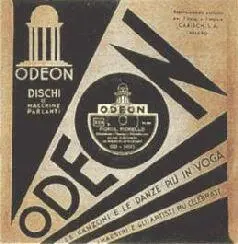
I had to listen to the songs again, then; they must have been the sonic furnishings of my childhood. Perhaps my grandfather had sat in his study listening to Wagner while the rest of the family listened to those pop songs on the radio.
I immediately picked out "If I Could Make a Thousand Lire a Month," by Innocenzi and Soprani. My grandfather had written dates on many of the jackets: whether these represented the year each song had come out or the year he had acquired it I was not sure, but the dates gave me a rough sense of when the songs were being played on the radio. In this case, the year was 1938. Gianni had remembered well; the song had come out around the time his family purchased their Phonola.
I turned the record player on. It still worked: the speaker was no prodigy, but perhaps it was proper that everything crackled as it once had. And so it was that, with the radio panel illuminated, as if broadcasting, and the record player spinning, I listened to a transmission from the summer of 1938:
If I could make a thousand lire a month ,
it wouldn’t be a lie to say that it would buy
all the joy a man could want.
I’m just an office man , I don’t aim too grand ,
and if I keep on trying , maybe I can find
all the peace a man could want.
A nice little house on the edge of the city ,
and a little wife too , so young and so pretty
and so very much like you.
If I could make a thousand lire a month ,
I’d buy so many things , such beautiful things ,
oh anything you want.
Over the previous few days, I had been trying to imagine the divided self of a boy exposed to messages of national glory while at the same time daydreaming about the fogs of London, where he would encounter Fantômas battling Sandokan amid a hail of nailshot that ripped holes in the chests and tore off the arms and legs of Sherlock Holmes’s politely perplexed compatriots-and now here I was learning that in those same years the radio had been proposing as an ideal the life of a humble accountant who longed for nothing more than suburban tranquillity. But perhaps that song was an exception.
I had to reorganize the records, by date when possible. I had to retrace year by year the formation of my consciousness through the songs I used to hear.
During my rather frantic reorganization-among a succession of my love my love bring me all your roses, you’re not my baby anymore, oh baby how I love you, there is a chapel love hidden in an apple grove, come back my darling, play just for me o gypsy violin, you divine music, just a single hour with you, little flower in the field, and ciribiribin, and among the orchestral stylings of Cinico Angelini, Pippo Barzizza, Alberto Semprini, and Gorni Kramer, on records labeled Fonit, Carisch, and His Master’s Voice, with the little dog listening with pointed snout to the sounds emanating from the horn of a gramophone-I stumbled across some Fascist anthems, which my grandfather had tied together with string, as if to protect them, or segregate them. Had my grandfather been Fascist, or anti-Fascist, or neither?
I spent the night listening to things that sounded familiar to me, though with some songs only the words came to mind and with others only the melodies. I could not help but know a classic like "Youth of Italy," which must have been the official anthem of every rally, but neither could I overlook the fact that it had probably emanated from my radio in close proximity to "Penguin in Love,’ sung, as the record jacket noted, by the great Trio Lescano.
I felt as if I had known those female voices for ages. The three of them managed to sing in intervals of thirds and sixths, creating an apparent cacophony that was sheer delight to the ear. And while Italy’s boys in the world were teaching me that the greatest privilege was to be Italian, the Lescano sisters sang to me of Dutch tulips.
I decided to go back and forth between anthems and songs, the way they had likely come to me through the radio. I went from the tulips to Balilla’s anthem, and as soon as I put the record on I began singing along, as if reciting from memory. It exalted that courageous youth (a proto-Fascist, since-as every encyclopedia knows-Giovan Battista Perasso, known as Balilla, lived in the eighteenth century) who hurled his stone against the Austrian troops, sparking the revolt of Genoa.
The Fascists must not have disapproved of acts of terrorism, and my version of "Youth of Italy" even included the lines "Now I have Orsini’s bomb / I will sharpen terror’s blade"-I think Orsini was the man who tried to kill Napoleon III.
But as I was listening, night fell, and from the orchard or the hill or the garden came a strong scent of lavender, and other herbs I did not recognize (thyme? basil? I think I was never very good at botany, and after all I was still the guy who, when sent out to buy roses, came home with dog testicles-maybe they were Dutch tulips). I could smell some other flower that Amalia had taught me to recognize: dahlias or zinnias?
Matù appeared and began rubbing up against my pant leg, purring.
I had seen a record with a cat on the cover-"Maramao, Why Did You Die?"-and so I put it on in place of Balilla’s anthem and succumbed to its feline threnody.
But did Balilla Boys really sing "Maramao"? Perhaps I should return to the Fascist anthems. It would matter little to Matù if I changed songs. I got comfortable, put him on my lap and began scratching his right ear, lit a cigarette, and prepared for full immersion in Balilla’s world.
After I had listened for an hour, my brain was a hodgepodge of heroic phrases, incitements to attack and kill, and oaths of obedience to
II Duce even to the point of ultimate sacrifice. Like Vesta’s fire erupting from her temple our youth goes forth on wings of flame a manly corps of youth with Roman will and might will stand and fight we don’t care a whit about the jails we don’t care a whit about
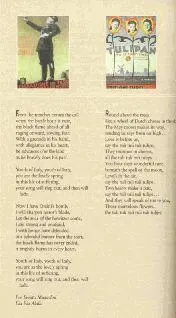
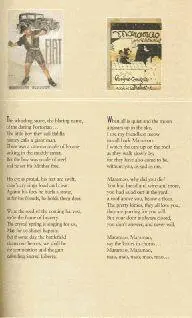
sad fate the mighty people of the mighty State don’t care a whit when it’s time to die the world knows the Black Shirt never fails we wear it when we fight and when we die for Il Duce and for the Empire eia eia alalà hail O Emperor King Il Duce gave new law to Earth and to Rome new Empire this is good-bye I’m off to Abyssinia my dear Virginia I’ll see you later I’ll send from Africa a lovely flower that blooms in the sun of the equator Savoy and Nice and deadly Corsica Malta that bulwark of Rome Tunisian shores mountains and sea resound with liberty at home.
Читать дальшеИнтервал:
Закладка:
Похожие книги на «The Mysterious Flame Of Queen Loana»
Представляем Вашему вниманию похожие книги на «The Mysterious Flame Of Queen Loana» списком для выбора. Мы отобрали схожую по названию и смыслу литературу в надежде предоставить читателям больше вариантов отыскать новые, интересные, ещё непрочитанные произведения.
Обсуждение, отзывы о книге «The Mysterious Flame Of Queen Loana» и просто собственные мнения читателей. Оставьте ваши комментарии, напишите, что Вы думаете о произведении, его смысле или главных героях. Укажите что конкретно понравилось, а что нет, и почему Вы так считаете.
